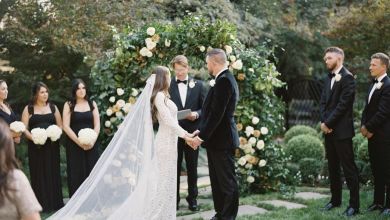Demystifying the Wedding Tax: Fact or Fiction?

Weddings are momentous events celebrated with grandeur and emotion. However, the financial aspect of wedding planning often brings a term into the spotlight—the “wedding tax.” This term refers to the perceived price increase for services and goods when specifically linked to weddings. Understanding whether this is a matter of exploitation or justifiable pricing is crucial for couples navigating their nuptial preparations.
What Exactly is the Wedding Tax?
The concept of a “wedding tax” suggests that vendors increase their prices for weddings compared to similar services at other events. Critics argue that because weddings are viewed as once-in-a-lifetime events, vendors take advantage of couples’ willingness to spend more to make their day perfect. This can apply to various aspects of a wedding, from catering and photography to floral arrangements and venue hire.
Decoding the Higher Costs at Weddings
While the term “wedding tax” might imply unnecessary markups, several legitimate factors contribute to the higher costs associated with wedding services:
- Emotional Investment: Weddings are high-stakes events. Vendors often go the extra mile to meet the lofty expectations of a wedding, which can involve more time, effort, and resources.
- Customization Needs: Unlike standard events, weddings frequently require bespoke services to reflect the couple’s personality and style. Customization demands more labor and creativity, which can increase costs.
- Complex Logistics: Weddings involve meticulous coordination of multiple moving parts, from intricate decor setups to timing multiple vendors. The complexity of managing these details can justify higher prices.
- Seasonality and Demand: Wedding seasons can drive prices up due to increased demand. Vendors and venues may charge more during peak seasons when their services are in higher demand.
- Quality and Perfection: The pressure for perfection at weddings is high. Vendors might use higher-quality materials or include safeguards that add to the cost to ensure that everything goes flawlessly on the big day.
Navigating Wedding Costs Effectively
To tackle the wedding planning process smartly and avoid feeling overcharged, consider the following strategies:
- Transparency and Communication: Engage in open discussions with vendors about their pricing. Understanding what you are being charged for can demystify costs and help you see the value in services provided.
- Comparison Shopping: Obtain quotes from multiple vendors to ensure you are getting competitive rates. This can also help you understand standard prices in the industry.
- Prioritize Spending: Decide what aspects of your wedding are most important to you. Invest in high-priority items while cutting back on or eliminating less important expenses.
- Seasonal Considerations: If possible, consider planning your wedding during the off-peak season to take advantage of lower rates.
- DIY Where Practical: Some elements of the wedding, like decor or favors, can be handled through DIY projects, which can reduce costs significantly.
Conclusion: Fact or Fiction?
While the “wedding tax” may have some basis in reality due to the factors mentioned above, it’s not always a straightforward exploitation. Weddings are complex events that require high levels of personalization and effort, which naturally incur higher costs. By understanding these dynamics and planning accordingly, couples can manage their wedding budgets more effectively, ensuring their big day is both magical and financially sensible.



